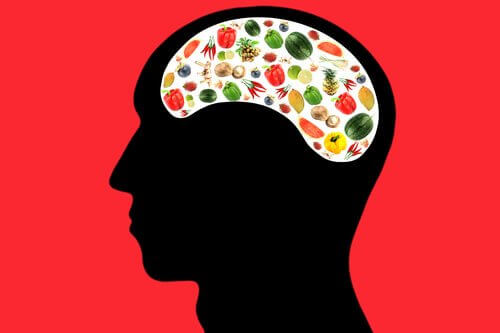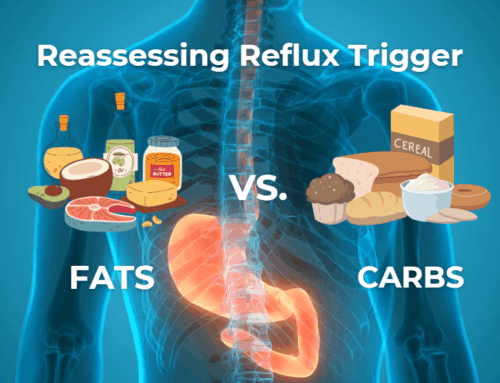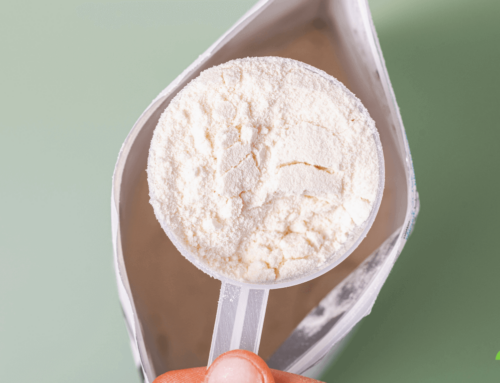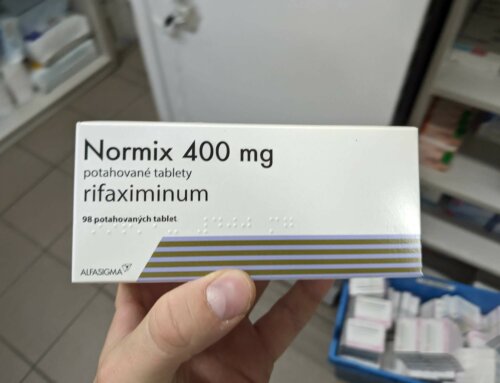A clear link between gut bacteria and Parkinson’s disease (PD) has been established by Caltech researchers led by microbiologist, Sarkis Mazmanian. The study published in the Dec 1, 2016 issue of Cell sheds new light on PD for researchers investigating effective treatments for this incurable central nervous system disorder.
One of the leading areas of research in PD involves the loss of dopamine-producing brain cells due to the abnormal accumulation of a human protein called alpha synuclein (αSyn). In fact, mutations (changes) in the gene for αSyn have been definitively linked to PD.
Also, did you know that people with PD often have a history of gastrointestinal issues including constipation? This gave the team the idea that gut bacteria may be involved in some way.
And, here’s where it gets interesting
Caltech researchers used a strain of mice that develop a PD-like illness and symptoms due to a genetic alteration that leads them to overproduce αSyn. αSyn is again a human protein found to aggregate (clump) not only in the brain cells of people with PD, but also in our gut cells. I will share some highlights of their findings at the end of this blog, but here is the bold conclusion of this study.
“Alterations in the human microbiome represent a risk factor for Parkinson’s Disease.”
Further, the authors propose that imbalances in short chain fatty acids (SCFAs) produced by gut bacteria contribute to the motor dysfunction in the mouse model of PD and potentially in people with PD.
What I find fascinating about this study is that these findings highlight a potential downside of dietary fiber
Short chain fatty acids (SCFAs) which include butyrate are produced by gut bacteria when we consume fiber or other fermentable carbohydrates. Butyrate has been touted as a super “anti-inflammatory” molecule that we should boost by consuming more fiber in our diet. Butyrate was also proposed as a cure-all for everything from leaky gut to colon cancer.
Results presented in this study support the idea that we may be consuming too much fiber and other fermentable carbohydrates in our diet. While SCFAs are healthy in moderation and represent “fat” produced by gut bacteria that we can burn for energy, we may be getting too much of a good thing.
A wealth of evidence supports the link between functional gastrointestinal disorders such as IBS and GERD, as well as autoimmune conditions and dysbiosis (an imbalance of intestinal bacteria) and/or small intestinal bacterial overgrowth (SIBO) that are inflammatory in nature. And if anything, SIBO and dysbiosis are expected to produce more SCFAs potentially in the wrong place in the digestive tract.
Diets that limit fermentable carbohydrates are winning in the clinic for these disorders suggesting that the carb-laden Western diet is behind these inflammatory conditions.
Fast Tract Diet for Parkinson’s Disease?
Limiting fermentable dietary carbohydrates, the strategy I write about in the Fast Tract Digestion books may turn out to be preventative for PD by controlling the overproduction of SCFAs. This goes directly against the common narrative about consuming more dietary fiber for optimal health.
M. Smithii Connection?
Also, since the majority of people with PD have a history of constipation, perhaps the role of the archaea microbe M. smithii which produces constipating methane gas should be evaluated in PD.
Word of caution
While this study on PD represents remarkable possibilities, the work was carried out in a mouse model and needs to be confirmed in people.
I recall a decade ago when I worked for Amgen, a biotech company developing a treatment for Parkinson’s disease (PD) called glial cell line-derived neurotrophic factor or GDNF. Based on a marked reduction in the symptoms of PD in a rhesus monkey model, the company carefully designed clinical trials in humans. This was no easy task as GDNF had to be directly infused into people’s brains since it did not cross the blood-brain-barrier on its own.
Sadly, despite the improvement in monkeys, the drug failed to show any improvement over placebo in double blinded placebo-controlled trials in humans. Given the risks and lack of effectiveness, the company had no choice but to halt the trial and deny those in the study from continuing to take the drug.
Highlights of findings by Caltech researchers
- Gut bacteria are required for αSyn aggregation and symptoms. Antibiotic treated or germ-free mice that overproduce αSyn don’t get the symptoms. Re-colonization of the mice with gut microbes restores the pathology and symptoms.
- Even giving the mice microbial end products alone in the form of short chain fatty acids (SCFAs) promoted neuroinflammation and symptoms. In other words, these SCFAs (such as acetate and butyrate) produced by bacteria rather than the bacteria themselves appear critical in the disease process.
- The disease process appears to involve inflammation since giving the mice an anti-inflammatory drug blocked the SCFA-induced neuroinflammation, αSyn aggregation and symptoms.
- Amazingly, conducting fecal microbiota transplants of these mice with microbiota from PD-affected human patients, but not healthy people “enhanced the αSyn-mediated impairments. This suggests something is amiss in the microbiota of PD patients.
About Parkinson’s Disease
According to the Parkinson’s Disease Foundation, PD affects 1 million Americans and 10 million people worldwide. Symptoms of PD include:
- Shaking
- Rigidity
- Slowed movement
- Difficulty walking
- Depression
- Problems with thinking, sleeping, and emotion
- Dementia
Celebrities with PD include Michael J Fox, Mohamad Ali, Billy Graham and Johnny Cash. Any treatment program for PD should include physical therapy. Read my second article on SIBO and PD Here.







Although you asked for a comment, not a question but I’ll ask in hopes you might respond with a thought or web sites I can consult.
I’ve just watched Dr Tom O’Bryan’ series which goes along with your information.
A year ago I had to have cystocele/ rectocele surgery. Since that time, I have found it necessary to take/ eat large amounts of fiber and continue to have constipation. Your article is the first to bring to attention too much fiber may cause this. Thank you
Do you know of a web site I can go to for help.
Thank you
Hi Neda, Though most people with PD have a history of constipation, that in no way suggests that most people with constipation will get PD. As the article indicates, this is very preliminary work and needs confirmation in humans. Meantime, if some fiber helps with your constipation, that should be fine. Also, when consuming a bit of extra fiber, you can always reduce other fermentable carbs such as lactose, resistant starch, fructose and sugar alcohols.
I have an overgrowth of Archea which have replaced an entire set of “normal” microbes in my lower GI tract. My former gastroenterologist arrogantly/demeaningly brushed off the (respected) lab findings for both SIBO and Archea replacement in my lower GI tract as “controversial” and “alternative”. So I searched for a new gastroenterologist and so far have been to two more, neither of whom have been of any help whatsoever. I have also taken Xifaxan and the very best (and most expensive) probiotics; last year I took over $18,000 from retirement savings for functional medicine fees, lab tests, etc. Not only my health but also my social life have crumbled.
For three very long years my situation has worsened even though I have been on a restrictive low-fermentable and low fodmaps diet for more than two and a half of those years. I already have a progressive demyelinating disease. Will they wait until I develop colon cancer, brain disease, or cardiovascular disease and then treat me for those instead?
In light of the above, I would VERY much appreciate your input: Exactly what needs to be done to get rid of Archea? If this is not within your field of expertise, can you refer me to a practitioner? I have done all I can and do not know where to turn.
Dr. Robillard, I was diagnosed with PD about 8 years ago. Since then, I have been taking carbidopa/levodopa only. However, I, like everyone else who takes PD meds, have had to take increasing amounts of the drug within shorter time spans. I’m wondering if SIBO or some other dysfunction of the small intestine, such as a coating of the small intestinal lining by either medication, medication fillers, or foods could be part of the problem. If there is such a coating, could it be decreasing the absorption of the medication (and nutrients, too for that matter)? Is there any food that can clean off the lining of the small intestine to make it more efficient?
Thank you for working so hard to find a non-drug way to improve our health.
Hi Joleene, You raise several issues and some including factors influencing drug half life and dosing would take some investigation. In terms of the role of SIBO and your gut lining, your gut lining should be self preserving/renewing. Some suggest that pathological bacterial biofilms with SIBO or dysbiosis can form and recommend biofilm busting enzymes. I don’t know of solid invivo data indicating the health and efficacy of these supplements though they do work on biofilms in the lab. The other thing to consider is how important the healthy biofilms are and we want to be careful not to disrupt these. Some medicines and supplements can affect how well other medications are absorbed and a close evaluation of all your meds and supplements might help.